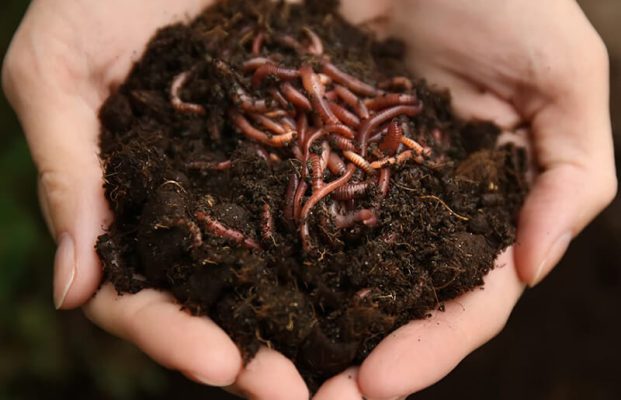
ORGANIC FERTILIZERS AND THE CIRCULAR VALUE CHAIN
1. Improve fertility, make soil porous: When applying organic fertilizers, under the influence of moisture and temperature, carbohydrates will be slowly decomposed into humus, humic acids, and necessary nutrients for plants. . This decomposition can last from a few days to several months, depending on the material of the manure and weather conditions, climate, soil environment. Therefore, the soil is more porous, increasing the ability to absorb water, helping the roots to develop more.
2. Improve product quality: One of the most affected crops is vegetables, short-term crops; while perennial crops and industrial plants are less affected. Therefore, in order to export high-quality agricultural products, the use of organic fertilizers for farming should be of primary concern.
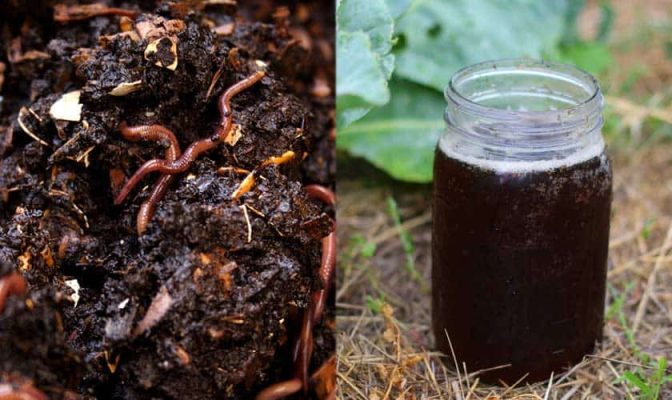
Worm hydrolysis technology creates high quality protein for domestic animals
3. Limit soil erosion and nutrient leaching: Organic matter will make the soil more porous, thereby increasing water permeability and keeping substances in the form of ions or molecules in the form of stable bonds. steady. The application of fertilizers such as straw, plant residues also prevents the flow of water when it rains heavily and the soil has a high slope.
4. Purification of water sources: Organic substances attract or retain harmful dissolved substances in water such as H2S, chemical fertilizer residues Nitrate, Sulfate, Chlor… under the influence of temperature, humidity, oxygen… Toxic substances will gradually decompose into substances that are less or not toxic to humans and animals.
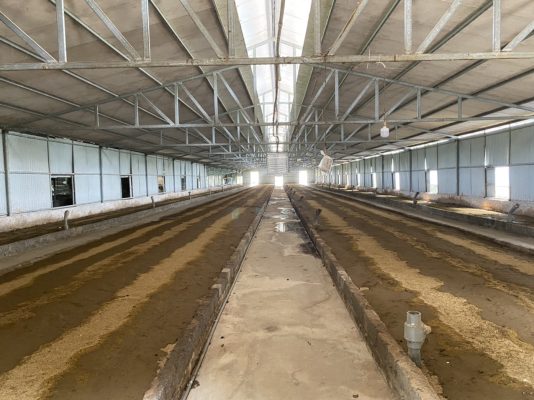
High-tech vermicompost production model in the circular value chain
5. Reducing pests and diseases: With today’s high intensive farming, it will make the tree grow fast with dense branches and leaves, easy to attract insects to damage, and at the same time create favorable conditions for a Some harmful fungi grow on plant parts such as roots, stems, leaves, branches, fruits… Organic fertilizers help the branches and leaves to be stronger, thick leaves, and the ability to withstand adverse conditions. is also better, so the plant is less susceptible to pests and diseases.
6. Limiting the use of chemical drugs: Due to the tree’s balanced development of trunk, branches, leaves, the tree’s resistance to adverse environmental conditions such as drought, flood, wind, humidity, heat and cold also better. The soil environment is clean, the roots are many, deeply rooted. Harmful fungi also do not have the conditions to arise and spread. Therefore, limit the use of chemical drugs to protect plants.
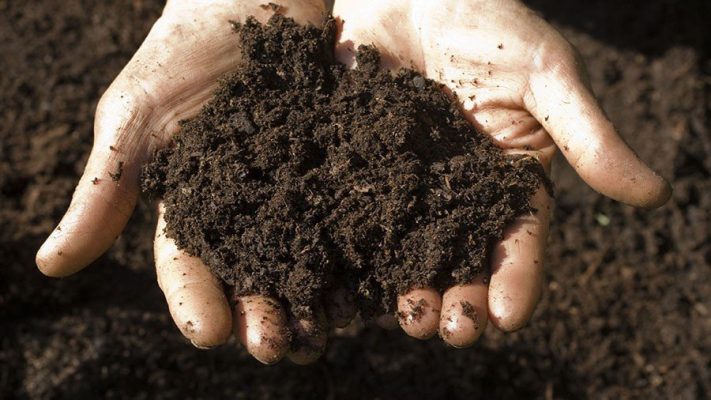
Organic fertilizers from the model are supplied to the fields of GreenFarm
7. Create a good environment for beneficial microorganisms in the soil to work: Organic fertilizer after decomposition will provide humus to the soil, increase pH, reduce soil acidity and create favorable conditions for microorganisms. organisms in the soil grow. The full addition of organic fertilizer after each harvest will make the soil porous, the humus substances in the compost will be food for beneficial microorganisms, the number of beneficial microorganisms will increase significantly. , while harmful microorganisms will be reduced.
8. Saving water for irrigation: Organic substances limit evapotranspiration and keep the soil moist. The temperature in the soil is better regulated, the soil does not heat up suddenly or cool down in a short time.
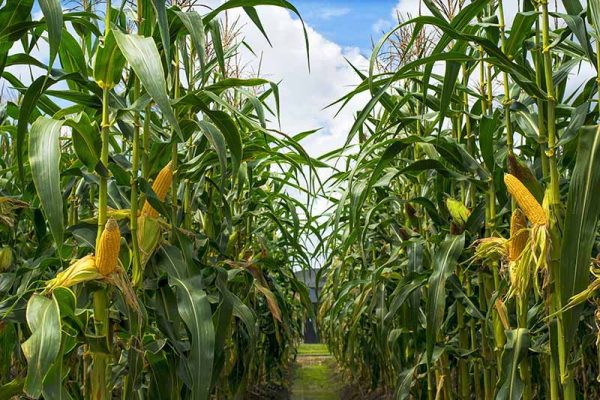
Corn fields in the model of providing fodder for livestock
9. Reducing the amount of chemical fertilizers: For the land planted with rice, corn, cereal crops… after harvesting, the seeds are removed, leaving the unusable parts such as stems, leaves, cobs of corn. will be crushed and returned immediately to the land, the soil will be less fertile. Keeping the soil with a humus content of 5-6% along with regular, adequate organic fertilizer application can reduce the amount of chemical fertilizers by 70-80%.
10. Good for human and animal health: Organic fertilizers do not pollute the environment while chemical fertilizers leave residues that cause soil acidity and water pollution, especially in residential areas. near agricultural production. Organic fertilizers and beneficial microorganisms in the soil will be a factory to process toxic substances such as H2S, CO2, NH3, CH4… into non-toxic compounds, the water source will be cleaner and safe for humans. and livestock.
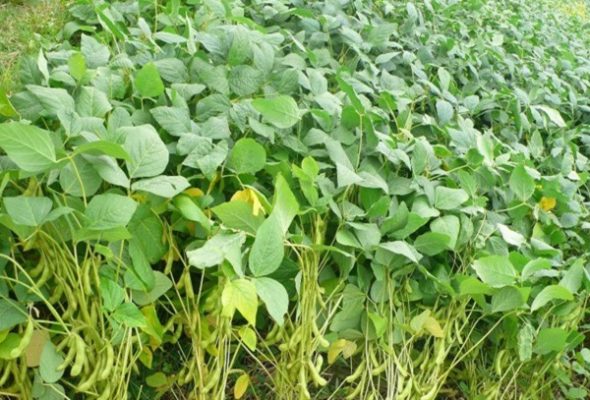
Legumes are intercropped for better soil improvement
